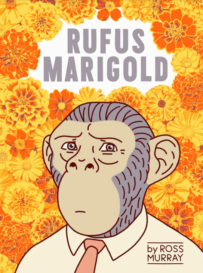Paul Kavanagh on Iceberg
With the release of Iceberg, Paul Kavanagh’s second book, we thought we’d ask the great man a few more questions.
Iceberg is very different to The Killing of a Bank Manager…
Paul Kavanagh: I wanted Iceberg to be a fast and fun read. I wanted to use a conventional style, I didn’t want to tax the reader, I wanted the read itself to be pleasurable. My intention with The Killing of a Bank Manager was to make the read as onerous as the character’s journey. I wanted each footstep the character took on his journey to murder to be extremely difficult for the reader, the psychology of the character to be matched by the paragraphs, sentences, and those long, obscure words. I wanted the reader’s journey to mirror Henry’s journey. Iceberg is the antithesis to The Killing of a Bank Manager in style; nevertheless, I have my fun.
What inspired Iceberg?
PK: Did you know that the Black Death reduced the world population from an estimated 450 million to between 350 and 375 million? I was reading a book about the Black Death, after just finishing Daniel Defoe’s A Journal of the Plague Year, his best book, and I read about how some of the people profited just by having the luck to outlast the Black Death. This got me thinking, as long as there are people that survive an apocalypse, there will be those that profit. Dante’s Divina Commedia inspired Iceberg, but so did Whale Wars on Animal Planet, and pictures of the debris after the Japan earthquake.
“Dante’s Divina Commedia inspired Iceberg, but so did Whale Wars on Animal Planet, and pictures of the debris after the Japan earthquake.”
Tell us about the process of writing Iceberg…
PK: I sat down and I typed out the words. It produced a mellifluous sound. Instead of walking boots, a rucksack and a passport, I opened many books. I had an aunt write to me about the streets around her house, about her local pub, about the doctor’s waiting room. I have a proclivity for reading travel books and memoirs, Robert Byron, Leigh Patrick Fermor, and Bruce Chatwin. I waited until I was in a state of hypnagogia and before sleep I quickly filled a notebook.
Did you mean Iceberg to be uplifting?
PK: Yes, I wanted to write an uplifting apocalyptic tale. When the kettle drums bang and the trumpets blow I want some Parker or Gillespie. You can’t beat Bosch’s oranges or the humor in The Triumph of Death. Just look closely at the peerless oranges and witness the jester scurrying under the table.
You mention Boris Vian in Iceberg…
PK: The importance of Vian to my writing is immeasurable. That there is not a movie of Vian projected onto the moon playing his music is a travesty. I don’t think Vian wrote with constraints as Raymond Queneau did, but I write without constraints, in my writing anything can happen and will happen, I disdain rules and fashions, I would like to use every word in the dictionary, no matter how long or how obscure, I love adverbs, I love long and short sentences, I love obfuscation and Byzantine sentences, I love clear and concise sentences, I want to write about things that are silly, I want to irk, to vex the reader, to make the reader giggle, laugh, scream, cry, more importantly laugh as a child would laugh. Vian makes me laugh like a child.
“I think at eight o’clock every night Vian should be on the moon and that we should turn off the television and computers and remove the headphones and watch and listen to Vian.”
What do you think about Don and Phoebe?
PK: I don’t. They are as alive as the words on the page, they are as intricate as the letters that make up the words, they are as colorful as the ink.
Are we all going to end up on an iceberg or are we just giving away the ending?
PK: Not an iceberg, but a big ball of ice nevertheless.
What’s next for Paul Kavanagh?
PK: The Kingdom of Kaleidoscopes.
Iceberg, by Paul Kavanagh, is out now.
Tags: boris vian, iceberg, paul kavanagh, paul kavanagh iceberg, pk, Raymond Queneau














